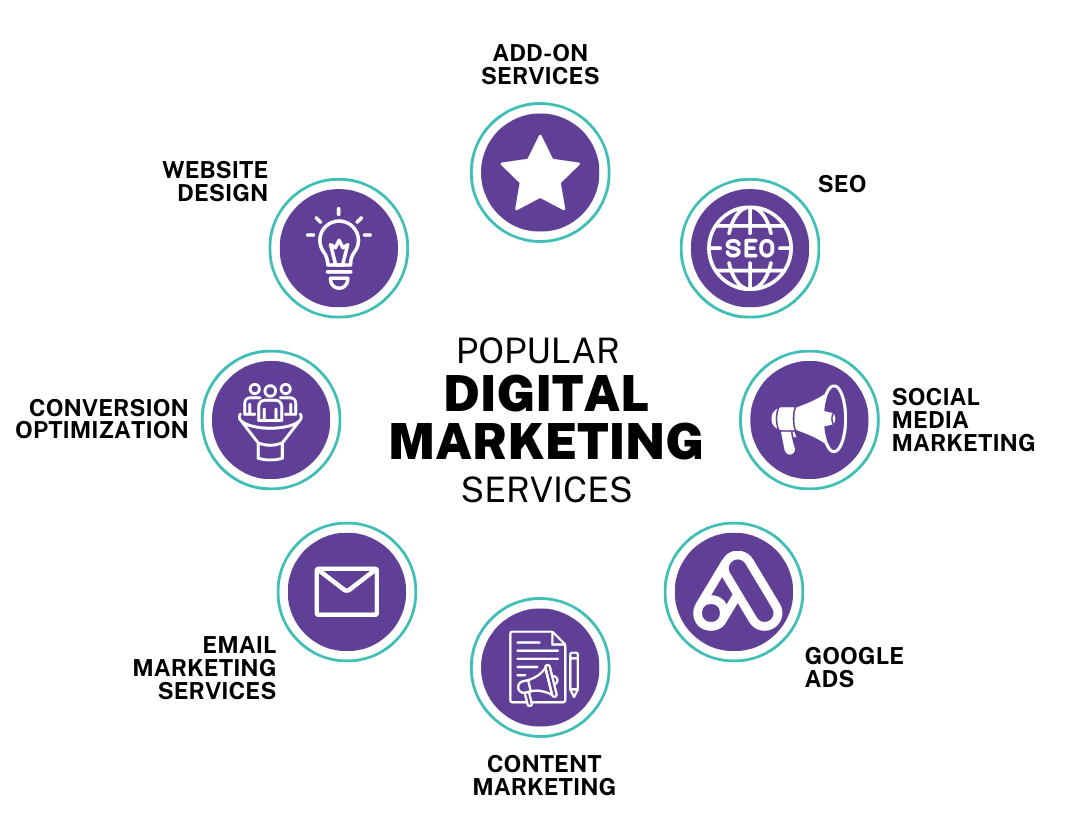A Glimpse into the Future of Digital Marketing in 2024

Strong 8k brings an ultra-HD IPTV experience to your living room and your pocket.
The digital marketing landscape is an ever-evolving ecosystem. Platforms rise and fall, consumer behavior shifts, and technological advancements reshape how we interact with brands. As marketers, staying ahead of the curve is crucial to reach target audiences and achieve success. So, what does the future hold for digital marketing? Here, we delve into some key trends that will likely define the years to come.
1. The Rise of AI and Machine Learning
Artificial intelligence (AI) and machine learning (ML) are no longer futuristic concepts – they're actively transforming marketing strategies. Here's what to expect:
Hyper-Personalization: AI will analyze vast amounts of data to tailor content, ads, and recommendations to individual users. Imagine email campaigns crafted specifically for each customer's interests and purchase history.
Predictive Analytics: ML algorithms will anticipate customer needs and preferences before they even arise. This allows for proactive digital marketing efforts, suggesting relevant products or services at the perfect moment.
Chatbots powered by AI: Chatbots will become more sophisticated, providing 24/7 customer support and engaging in natural language conversations.
Automated Content Creation: AI can generate personalized marketing copy, product descriptions, and even social media posts, freeing up time for higher-level strategy.
2. The Age of Voice Search and Conversational Marketing
Voice search is rapidly gaining traction, with platforms like Alexa and Google Assistant becoming ubiquitous. Marketers will need to adapt to this shift by:
Optimizing content for voice search: Focus on long-tail keywords and natural language queries people might use while speaking.
Creating engaging audio content: Podcasts and audio-based formats may become essential for reaching audiences.
Developing conversational experiences: Chatbots and voice assistants will need to seamlessly integrate into the customer journey.
3. The Continued Dominance of Social Media (But Not As We Know It)
Social media will maintain its central role, but the focus will shift from generic posts to more interactive and immersive experiences. This includes:
Augmented Reality (AR) and Virtual Reality (VR): Imagine trying on clothes virtually or attending product demonstrations in a VR world. Social media platforms will leverage these technologies for deeper customer engagement.
The Rise of Ephemeral Content: Platforms like Snapchat pioneered the concept of disappearing content. Expect more platforms to embrace this format, requiring marketers to develop engaging, short-form content.
Community Building: Social media will be about fostering dedicated communities around brands, where users can interact with each other and feel a sense of belonging.
4. The Power of Influencer Marketing Evolves
Influencer marketing remains potent, but the future lies in micro-influencers. These individuals, with smaller yet highly engaged audiences, offer brands:
Increased Authenticity: Consumers are wary of inauthentic influencer endorsements. Micro-influencers, with their genuine connections, build trust and have higher conversion rates.
Niche Targeting: Micro-influencers often specialize in specific areas, allowing marketers to target their ideal audience more effectively.
Cost-Effectiveness: Partnering with several micro-influencers can be more cost-efficient than collaborating with a single, bigger name.
5. Privacy and Data Security Take Center Stage
As consumer privacy concerns escalate, data regulations like GDPR (General Data Protection Regulation) will become the norm. To navigate this landscape, marketers will need to:
Prioritize Transparency: Be upfront about data collection practices and gain explicit user consent for data usage.
Focus on First-Party Data: Build relationships with customers to gather valuable first-party data, reducing reliance on third-party sources.
Contextual Targeting: Utilize contextual targeting strategies that don't require intrusive data collection methods.
6. The Evolving Landscape of Content Marketing
Quality content remains the cornerstone of a successful digital marketing strategy, but the future calls for:
Interactive Content: Go beyond static text and images. Videos, quizzes, polls, and other interactive formats will captivate audiences and drive engagement.
User-Generated Content (UGC): Encourage customers to create and share content about your brand. Positive UGC fosters trust and authenticity.
The Power of Storytelling: Weave emotional narratives into your content marketing efforts. Stories connect with your audience on a deeper level and leave a lasting impression.
7. The Integration of Omnichannel Marketing
Gone are the days of isolated marketing channels. The future lies in creating a seamless customer experience across all touchpoints. This means:
Consistent Brand Messaging: Ensure your brand voice, visuals, and messaging are consistent across all platforms, from social media to your website.
Data-Driven Customer Journeys: Track user behavior and tailor experiences based on their interactions with different channels.
Note: IndiBlogHub features both user-submitted and editorial content. We do not verify third-party contributions. Read our Disclaimer and Privacy Policyfor details.


